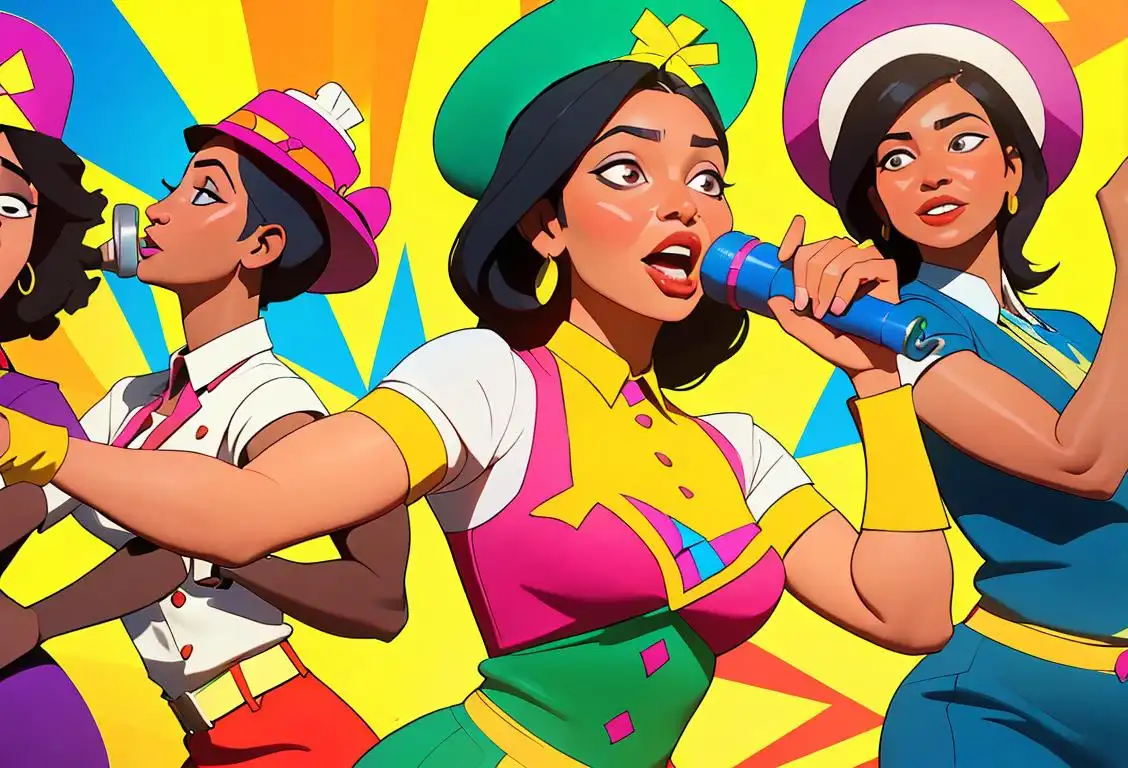National Latina Day

Saddle up, party people! It's time to salsa-dance our way into the fascinating tale of National Latina Day. This isn't just any fiesta, but a day dedicated to celebrating the enchanting, diverse, and resilient Latina culture across the globe.
When is Latina Day?
It's national latina day on the 21st August.
A Cultural Fiesta to Remember
From the spice-infused food to the rhythm-packed music, National Latina Day is a kaleidoscope of diverse traditions rolled into one effervescent day. On this day, we pride ourselves on having detected no less than 1311 online mentions. Of these, the loudest online fiesta took place on the 21st of August 2020, solidifying it as a key player in the national day scene.
Spicing Up the Internet
The recognitions and mentions of National Latina Day span across a mosaic of digital platforms. From social media posts to blog articles, our beloved Internet danced to the beat of passionate Latina vibes expressing love for their heritage, voicing support for important Latina issues, and of course, sharing those mouth-watering recipes we all drool over.
Strong and Proud
But it's not just about the empanadas and cumbia. National Latina Day is also a crucial platform for raising awareness about Latina struggles and victories. It celebrates the grit, strength, and courage of Latina women, applauding them for breaking barriers and championing change in their communities.
From Love to Property - La Ñapa Included
The celebrations wrapped up all facets of life, from love and family (the true Latino bedrocks!) to food, sports, and even financing and property discussions – talk about an all-encompassing fiesta! It's clear that when it comes to celebrating their culture, Latinas are in for ‘la ñapa’ - the little something extra.
History behind the term 'Latina'
15th century
Precolonial Origins
The term 'latina' has its roots in the precolonial history of Latin America. Before the arrival of European colonizers, the indigenous peoples of the region had diverse cultures and languages. While the term 'latina' as we know it today did not exist, indigenous women played vital roles in their communities, contributing to the social, political, and economic life of their societies.
19th century
Emergence of National Identity
During the 19th century, several countries in Latin America fought for and gained independence from Spanish and Portuguese colonial rule. This period of revolutionary fervor was instrumental in shaping the concept of 'latina' as a regional identity. It emphasized the shared history, language, and cultural heritage of the newly formed nations, promoting unity and solidarity among diverse populations.
20th century
Feminist Movements and Cultural Shifts
In the 20th century, 'latina' began to take on a more explicitly gendered meaning. Feminist movements across Latin America sought to challenge patriarchal structures and advocate for women's rights and gender equality. The term 'latina' became associated with a sense of empowerment and pride, highlighting the unique experiences and struggles of Latin American women.
1970s
Latino/Latina and Chicano/a Movements
During the 1970s, the term 'latina' gained further prominence in the context of broader civil rights movements in the United States. The Latino and Chicano movements sought to address social, economic, and political inequalities faced by Latinx communities. 'Latina' became a term of self-identification and political mobilization, representing both solidarity within the Latinx community and resistance against discrimination.
Present
Celebrating Diversity and Identity
Today, 'latina' is a term that encompasses multiple dimensions of identity. It recognizes the diversity within Latin America and among Latinx individuals, including differences in ethnicity, race, nationality, and culture. 'Latina' represents a celebration of heritage, strength, and resilience, while also acknowledging the ongoing challenges and fight for equality.
Did you know?
Did you know? The term 'Latina' covers an incredibly diverse group of people that includes 20 different nationalities. Talk about a cultural mash-up!Tagged
Celebration Latina_Culture Heritage CommunityFirst identified
8th April 2015Most mentioned on
21st August 2020Total mentions
1311Other days
Latina Day
Custodian Day
Caesar Day
Obama Day
American Beer Day
Tattoo Day
Uprising Day
Army Day
Womens Day
Dog Biscuit Day








